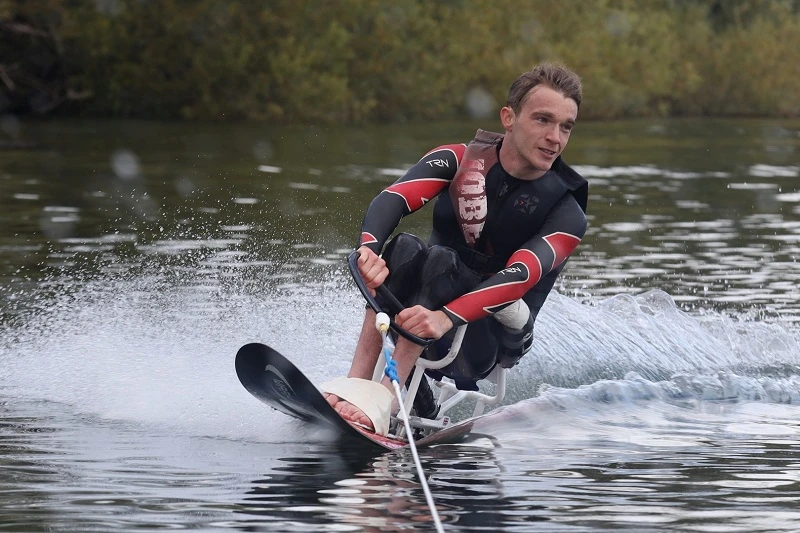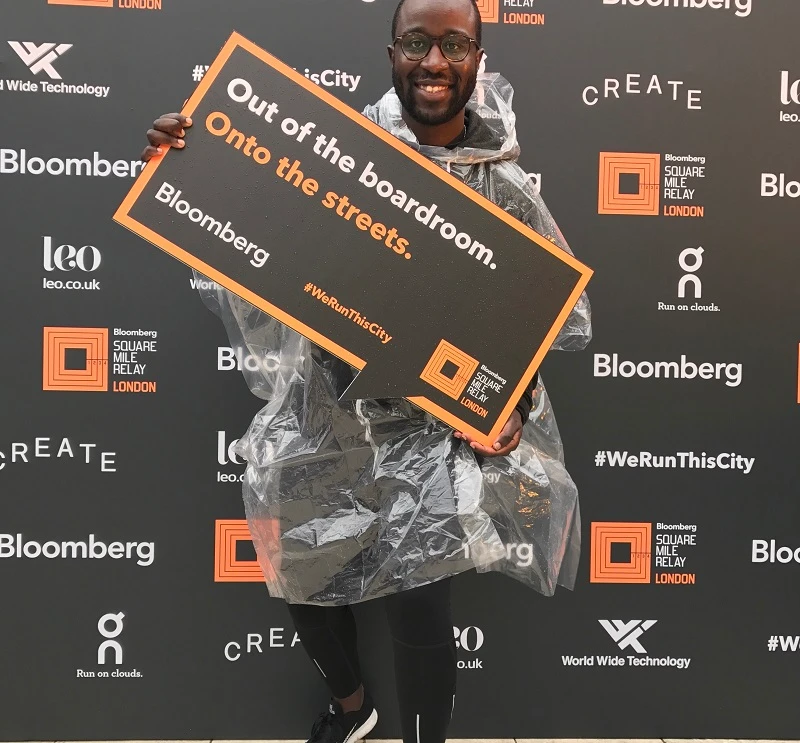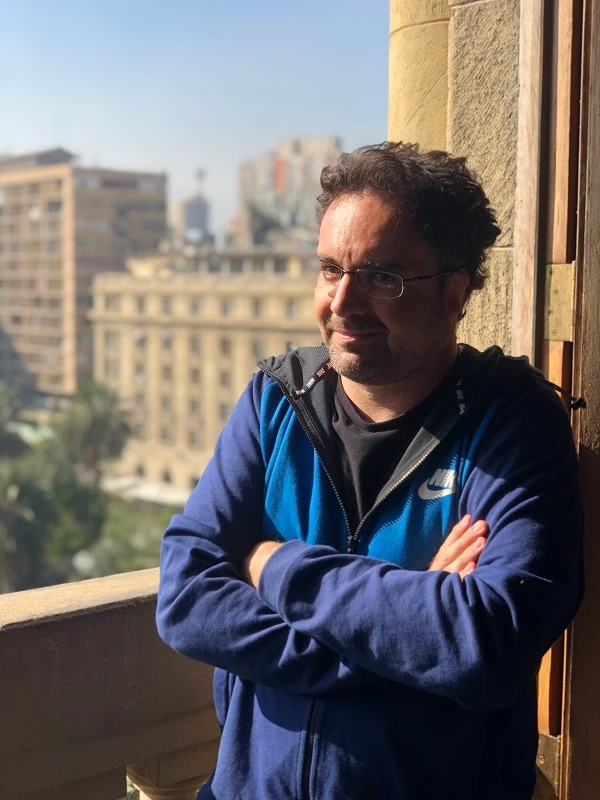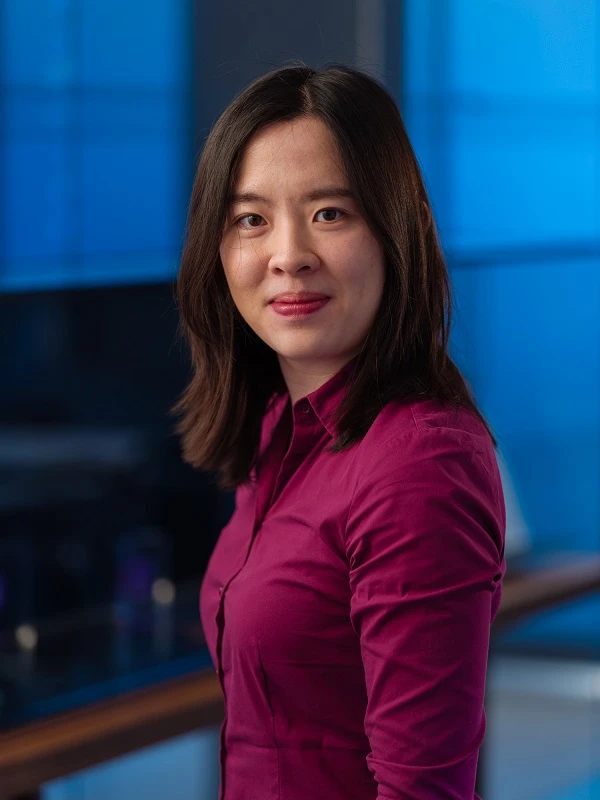Disability and identity in the workplace and beyond
October 13, 2020
Open, candid conversations about diversity and inclusion in our society must continue in order to support an equitable workplace. Bloomberg sponsors and encourages these dialogues in various forms and forums.
One of the goals of these exchanges is to explore different facets of identity and experience from the first-hand perspectives of employees across the firm. In celebration of National Disability Employment Awareness Month, we’re spotlighting the unique experiences of our colleagues with disabilities, the support they have received, and ways we can all be better allies.


Jonathan Priestley, London
Jonathan contracted a rare neurological condition, transverse myelitis, as an infant, which left him wheelchair-bound. After working in the public sector, he was looking for new opportunities at a firm embracing technological innovation and prioritizing diversity and inclusion (D&I) – he joined Bloomberg’s Analytics team in 2018.
Please share your experience with disability, and how it does/not shape your identity.
I have grown up with my disability, so my relationship with it has evolved over time. When I was younger, I used to stubbornly assert that my disability doesn’t define me. However, as I’ve grown older, I have embraced my disability as part of my identity. I learnt that the process of coming to terms with a disability is a journey of self-discovery.
Living in London, do you experience any stigma or systemic challenges faced by people with disabilities?
There are many structural barriers facing people with disabilities in London. You only have to look at a Tube map to see just how many stations don’t have step-free access. That said, there is always someone more than happy to help when a lift breaks down.
What support have you found – either at Bloomberg or within your community and/or family?
I have found so much support from my colleagues and managers, who are always very open to making sure that I can bring my authentic self to work. I also received brilliant support from EmployAbility, which helped me with my application to Bloomberg by making sure I had all the necessary adjustments in place.
Outside of work, I have started adaptive waterskiing with a charity called Access Adventures. Being in a community surrounded by other inspiring people who have disabilities really motivates me in all aspects of my life.


Jessica Deng, Shanghai
Born and raised in Shanghai, Jessica joined the Facilities team at Bloomberg as her first job out of college, in 2018.
Please share your experience with disability, and how it does/not shape your identity.
Since I wasn’t born with a disability, but suffered a pronounced limp and limited mobility following a car accident right after high school, I might be more sensitive to the switch between the two. Most people feel pity for me, and I often reassure them by saying, “Thanks, but I’m still who I am. I never liked running, but I still enjoy traveling and bungee jumping!”
How has your disability impacted your career decisions, and what strengths do you believe your disability brings to your work and community?
The lack of mobility may have prevented me from doing physically demanding work, but my experience has enabled me to understand both the non-disabled and the disabled. I’d like to be a bridge between them. I would say to a disabled friend: “Even if we have disabilities, it doesn’t mean we can’t achieve a career.” To non-disabled friends: “You don’t have to be overly curious/sympathetic. We’re all the same people who want to make ourselves better.”


Samuel Esilaba, London
Sam was born in Kenya, spent his formative years living in various countries, before settling in the UK and completing his studies. After looking for companies that were disability confident and positive, he joined Bloomberg’s Global Data team in 2013.
Please share your experience with disability, and how it does/not shape your identity
I wasn’t diagnosed with dyslexia and dyspraxia until my last year of university, when a professor noticed my continuous struggles with written work. I had gone through almost all of my academic years wondering why I had to work much harder than my peers just to keep up.
Initially, I was reluctant to be tested or acknowledge I was dyslexic, as I was concerned it was a weakness — in fact, it is quite the opposite. It has allowed me to embrace and hone my strengths, such as divergent thinking and pattern recognition. My diagnosis also helped explain many of the challenges I faced earlier in life.
What support have you found – either at Bloomberg or within your community and/or family?
I have been a member of Bloomberg’s Abilities Community in London since its inception in 2016. It has been a great resource for me as an open forum, and an inclusive and supportive environment. I also have the strong support of my managers, team leaders, and colleagues, who have helped me in building the confidence to develop my skills further. In addition, the Occupational Health and Safety team have ensured that adjustments, such as speech-to-text software, mind mapping, screen overlays, and more, were available.


Mario Gonzales, Sao Paulo
Originally from Bolivia, Mario was raised in Brazil, but has a passion for global travel and culture – one of the many reasons he was interested in joining Bloomberg’s HR department in 2017.
Please share your experience with disability, and how it does/not shape your identity
I was born without an auditory system on the left side, so I am deaf in that ear. Until I turned 16, I used to hear pretty well from the right side, but I suffered further hearing loss in my late teens. My doctors explained that it was a congenital issue, which meant that I would gradually lose more of my hearing. Today I wear a hearing aid in public places and require frequent medical care.
Living in Brazil, do you experience any stigma or systemic challenges faced by people with disabilities?
Sadly, Brazil is not a country geared toward people with disabilities. Generally, people in Brazil are not very patient with people who have my kind of disability, especially in public when it’s hard to “read” what others are saying — though this is sometimes understandable, as it can be an “invisible” disability. I think people can become better allies by being more empathetic, trying to listen and understand, and trying to see things from another perspective.


Shirley Yap, London
Originally from Malaysia, Shirley attended school in North America before looking for a technical role that would match her interests in programming and data analysis, and joining Bloomberg’s Global Data team in London in 2017.
Please share your experience with disability, and how it does/not shape your identity
I have been profoundly deaf for almost all of my life, and I rely on lip reading and hearing aids. Growing up, it was challenging not knowing what my peers were talking about and not being able to follow popular TV shows or movies, but I was able to develop other interests like reading so that my disability doesn’t solely define me. As deafness is something I live with every day, I’m used to looking for accessible formats or adjustments that might help me not miss out on experiences.
How has your disability impacted your career decisions, and what strengths do you believe your disability brings to your work and community?
Being deaf can make it challenging to follow large-scale discussions or work in crowded places, but, on the other hand, concentrating on one task is easier as I tend not to hear distractions. That sharpened my interest in a technical career, where these skills are really useful.
Action, inclusion, and allyship
Education is the first step to developing authentic allies in the workplace, and there are many ways to foster allyship within organizations. At Bloomberg, we hold frequent engagement sessions to educate employees about both visible and non-visible disabilities, and we provide training on how to embrace disability in the workplace. Through in-person events, virtual training sessions, and adaptive experiences like the Beyond Our Sight program, we focus on promoting empathy and understanding, while equipping our employees with the skills to support colleagues with disabilities appropriately.
True inclusion requires a shift in mindset in which we start to use our positions of privilege and authority to advocate for those who are different from us. Below are a few ways to get started by taking action:
- Acknowledge and respect different experiences. Avoid assumptions.
- Listen, learn, and educate yourself about difference and your own biases. Try to create an open space for learning and discussion with your colleagues, friends, and family.
- Continue to educate yourself about the unique experiences of people with disabilities and be thoughtful with the language you use.
- Take action and be an advocate for others.
- Recognize and appreciate different voices.